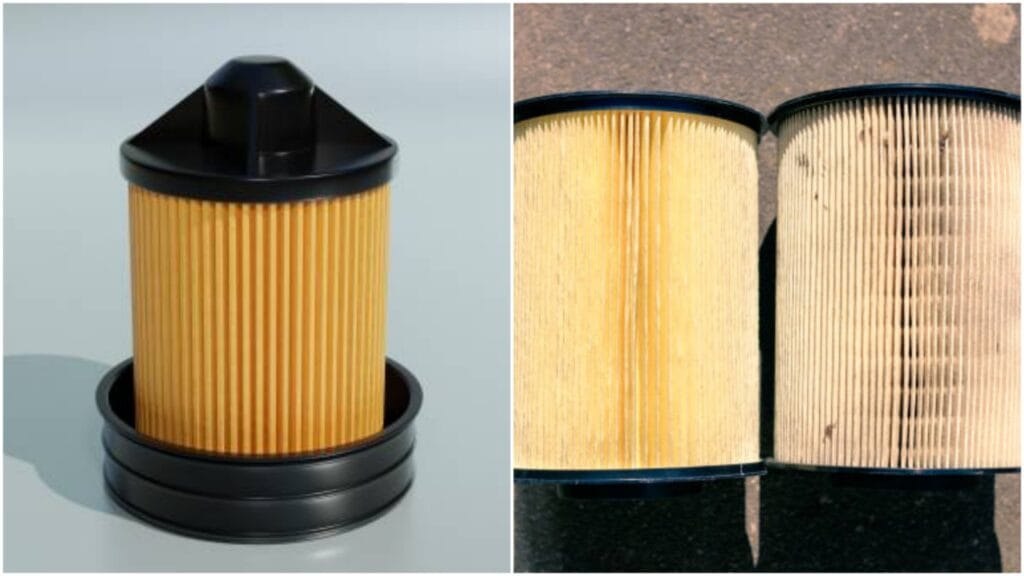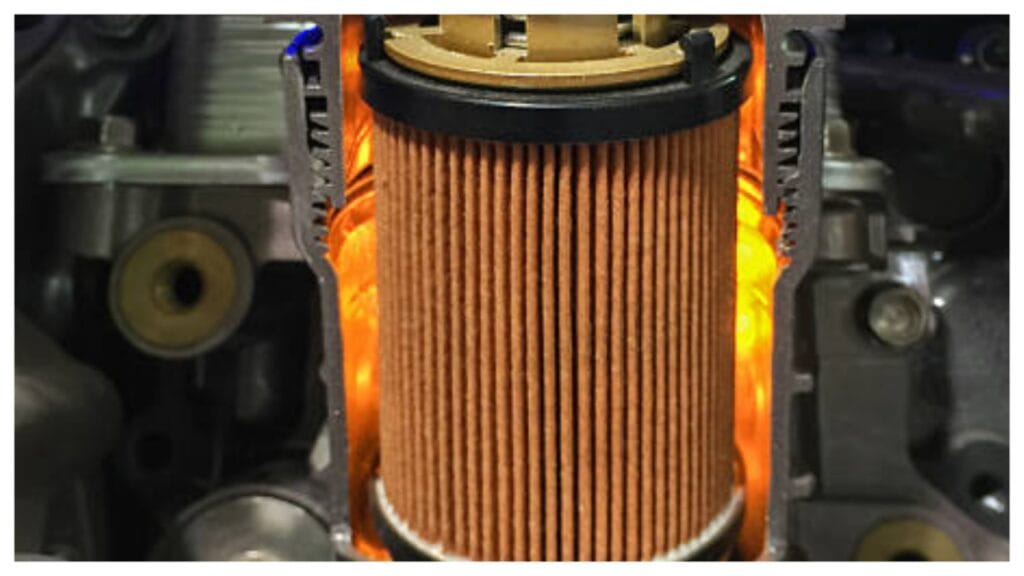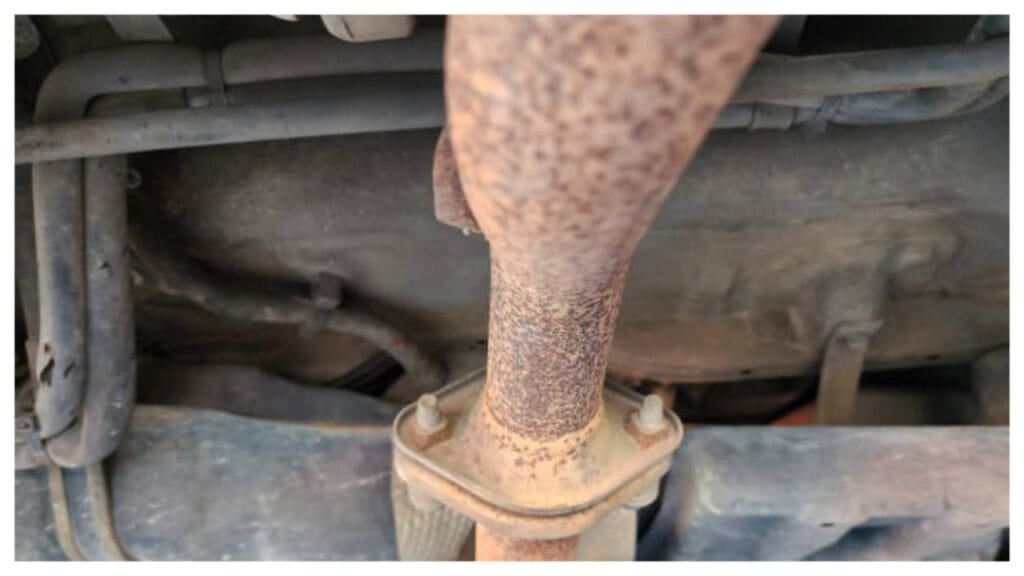When choosing the best oil filter for synthetic oil, select reputable brands. Good options include Mobil 1, Bosch, K&N, and Fram Ultra Synthetic. These brands are known for their durability, filtration efficiency, and compatibility with synthetic oils.
A good oil filter should have a robust construction. It should include a metal end cap and a silicone anti-drain-back valve. This design ensures oil doesn’t drain out when the engine is off. Filters with multi-layer synthetic media offer better debris trapping and flow.
Also, consider the micron rating—lower microns mean better filtration but slightly reduced flow, which isn’t an issue with top brands. Always match your filter to your car’s specifications and driving habits. Quality filters protect your engine for longer intervals and work well under more demanding conditions.
So, what should you look for in a good oil filter for synthetic oil? Let’s break it down.
What Makes Synthetic Oil So Special?
Before we even talk filters, let’s chat about synthetic oil for a second if you care about performance; synthetic oil is more resistant to breakdown, handles extreme temperatures better, and offers superior protection.
Whether you’re putting your car through daily commutes or weekend joyrides, synthetic oil gives your engine an edge. But here’s the kicker—synthetic oil can carry more dirt and contaminants because it’s so good at cleaning.
It scrubs your engine clean while keeping it lubricated. And where do all those impurities go? Right into the oil filter. That’s why the filter for synthetic oil needs to be a beast.
It’s not just about catching the crud. It’s about doing it consistently without getting clogged. This ensures the oil stays flowing like it should.
How Do You Spot a Good Oil Filter?

Here’s where things get interesting. Shopping for an oil filter can feel like wandering into the Wild West. There are so many brands and claims; half the time, they all sound the same.
I’ve learned that the real good stuff hides in the details. You can easily spot the winners if you know what to look for.
Filtration Efficiency
First up—filtration efficiency. If you’ve ever looked into oil filters, you’ve seen percentages thrown around, like “99% efficiency.”
What does that even mean? A higher efficiency means the filter is better at catching unwanted particles. These particles include dirt and sludge. They are caught before getting into your engine.
A synthetic oil filter should be highly efficient. As I mentioned earlier, synthetic oil tends to pick up more contaminants.
An efficiency rating above 95% is a good start. Yet 98–99% is ideal. This is especially true for particles in the 20–30 micron range.
You do not care about the exact size of those particles, but your engine does.
Filter Media
Here’s a detail that often gets overlooked but matters big time—the material inside the filter, known as the filter media. You’ve got two main types: cellulose and synthetic blend media. Here’s where it gets tricky—some filters made for synthetic oil use synthetic media.
Synthetic media can hold more contaminants while maintaining oil flow. This is precisely what you want when you’re using synthetic oil. Synthetic oil tends to last longer between changes. It’s stronger, lasts longer, and works better with high-performance oil.
A good tip? Look for multi-layer or blended media that combine cellulose and synthetic fibers. This will give you the best of both worlds—excellent filtration and durability.
Build Quality
You’ll instantly notice the difference if you ever see the guts of a cheap oil filter vs. a quality one. With a good filter, the internal components, like the canister and bypass valve, are built to last.
The bypass valve is critical. If the filter gets clogged, this valve opens, letting oil bypass the filter and preventing your engine from starving.
But a cheap bypass valve can open too early, letting unfiltered oil through even when it’s not clogged. Yikes, right? So, a well-made bypass valve is critical.
You should also pay attention to the anti-drain back valve. It prevents oil from flowing out of the filter when the engine is off. It keeps things primed for your next startup, so you’re not stuck with a dry engine on ignition.
Capacity
Another thing to consider is how much gunk the filter can hold before it stops working effectively. This is especially important for synthetic oil, which lasts longer between changes. This means the filter needs to have more contaminants over time.
Some filters boast a higher capacity, which is excellent, but this is where it gets a little nuanced. You want a balance between filtration efficiency and capacity. A filter that holds more dirt but doesn’t filter as well is a no-go. Again, this is where synthetic media shines—it’s great at balancing both.
Do Brands Matter?
Yes, brands can give you a good starting point, but you’ve got to dig deeper. Some well-known names in the oil filter game have earned their reputation for a reason.
Brands like Mobil 1, Bosch, and K&N are often trusted because they consistently deliver on quality. Nonetheless, it would help if you did not ignore lesser-known names altogether. Sometimes, you can find hidden gems if you know what to look for.
The Bottom Line on Identifying the Best Oil Filter for Synthetic Oil

Choosing the best synthetic oil filter involves understanding your engine needs. It also requires the skill to cut through the noise of flashy marketing.
Don’t just grab the first thing with a familiar logo—take a moment to check the details. Focus on filtration efficiency, the quality of the media, and the overall build of the filter.
How often do you replace filters?
How often you should replace your oil filter depends on several factors, including the type of oil you’re using, your driving conditions, and your vehicle. But let’s break it down in practical terms.
Standard Oil Changes and Filters
For most conventional oil-running vehicles, the oil filter should be changed every 3,000 to 5,000 miles, which coincides with typical oil change intervals.
Swapping the filter out at every oil change is a good habit. The filter catches dirt and debris from the oil, and you don’t want that stuff building up over time.
For Synthetic Oil Users
You can usually stretch that interval quite a bit if you’re using synthetic oil, which is why you’re reading about oil filters in the first place. 7,500 to 10,000 miles is often recommended for oil changes with synthetic oil, and the oil filter can last just as long.
Most high-quality oil filters are made to handle these extended intervals. This is especially true for those designed specifically for synthetic oil, like Mobil 1 or Bosch.
Driving Conditions Matter
Driving in more severe conditions requires more frequent filter replacement. Conditions like stop-and-go traffic, extreme temperatures, towing heavy loads, or driving off-road demand this. This is important even if you’re using synthetic oil.
In these cases, oil filters work harder because your engine is under more stress and accumulating more contaminants. Even with synthetic oil, you should check the filter. Inspect it at around 5,000 to 7,500 miles in rugged driving environments.
What’s the Bottom Line?

In general:
- For conventional oil: Replace the filter every 3,000 to 5,000 miles.
- For synthetic oil: Replace the filter every 7,500 to 10,000 miles or at every oil change.
- Consider changing the filter more often, around 5,000 to 7,500 miles in harsh driving conditions, regardless of oil type.
It’s always a good idea to check your vehicle’s owner’s manual for specific recommendations. Some manufacturers recommend oil filter changes based on time, like every six months, if you’re not driving as many miles.
Also, monitoring your car’s performance can tell you if the filter needs replacing earlier than expected (e.g. if you notice reduced oil pressure or increased engine noise).
Longer intervals are safe and recommended if you’re pairing premium synthetic oil with a high-quality oil filter.
FAQ’s
Best synthetic oil filter?
The best synthetic oil filter efficiently captures contaminants while allowing optimal oil flow. It is designed to work with synthetic motor oils, which are engineered for better performance and longevity.
These filters typically have finer filtration capabilities, helping to trap smaller particles that can cause engine wear. When choosing the best synthetic oil filter, look for one with a high dirt-holding capacity and strong filter media.
Brands like Mobil 1, K&N, and Bosch offer high-quality synthetic oil filters that are widely recommended. Mobil 1’s Extended Performance filter is known for its excellent filtration and durability.
K&N filters are popular for their easy installation and high flow rate, making them ideal for performance vehicles. Bosch, on the other hand, provides filters that balance filtration efficiency with durability at an affordable price.
Who makes Napa gold oil filters?
Wix, a well-respected name in the automotive parts industry, manufactures NAPA Gold oil filters. Wix produces high-quality filters to meet or exceed OEM (Original Equipment Manufacturer) specifications.
You get a Wix filter with a NAPA label when you buy a Gold filter. These filters offer excellent filtration, durability, and overall engine protection. They’re a popular choice among mechanics and car enthusiasts alike.
Choose NAPA Gold if you need a reliable oil filter for everyday driving or something robust for demanding conditions. Wix’s skill backs its quality, making it a solid choice that won’t disappoint.
Napa gold vs platinum oil filter:
The main difference between NAPA Gold and Platinum oil filters is their performance and intended use. Wix-made NAPA Gold filters are designed for everyday drivers looking for reliable, high-quality filtration.
They do a great job protecting your engine by filtering out contaminants while offering durability and solid performance. NAPA Platinum filters are made for more demanding conditions, such as heavy-duty use, high-performance engines, or extended oil change intervals.
They offer advanced filtration with synthetic media that can capture smaller particles and handle more contaminants. This makes them ideal for drivers pushing their vehicles harder and those needing that extra layer of protection.
NAPA Gold filters are great for typical driving needs. NAPA Platinum filters are the go-to for more extreme situations. Choose them if you want extra peace of mind.
NAPA Gold oil filter micron rating:
The NAPA Gold oil filter typically has a micron rating of 21 to 22 microns, which means it can effectively capture particles of that size or larger.
This rating balances filtration efficiency and maintains good oil flow for everyday driving conditions. Filters with this micron rating are designed to remove harmful contaminants from the oil, but they allow enough flow to keep your engine running smoothly.
It’s a solid choice for most vehicles. It offers reliable protection without restricting oil flow. This flow is crucial for the longevity of your engine. With the NAPA Gold filter’s efficiency, you can expect it to trap a significant amount of dirt and debris. It keeps your oil cleaner and your engine healthier over time.
Conclusion
NAPA Gold oil filters offer a dependable solution for drivers. They guarantee adequate engine protection and balance filtration and oil flow. These filters have a micron rating of around 21-22 microns. They efficiently capture contaminants while allowing adequate oil circulation, which sustains engine performance.
The reputable Wix company makes NAPA Gold filters. They are built for reliability. This makes them a solid choice for daily driving needs. Whether you’re handling your regular commutes or weekend road trips, these filters offer durability. They offer peace of mind that your engine is well-protected.
For drivers with more demanding requirements, NAPA Platinum filters offer advanced filtration for more challenging conditions. But NAPA Gold is a high-quality and trustworthy choice for most everyday drivers. It ensures your engine stays healthy and performs optimally over time.

